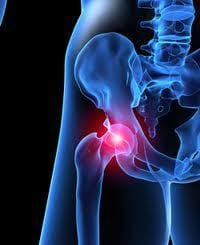DePuy ASR metal on metal hip replacements, bad to the bone? According to a British health agency, the Medicines and Healthcare Products Regulatory Agency (MHRA), millions of people worldwide who have received metal-on-metal hip replacement may need to get blood tests for the rest of their lives.

Many metal hip replacement systems contain chromium and cobalt in the ball-and-socket device, which became popular due to the untested belief that they would be more durable to younger, more active hip patients.
Recently, there has been damaging data to indicate that these types of hip implants not only have a high rate of failure, but also shed metal particles into the body that can cause metallosis.
On February 28, Britain’s health agency, the Medicines and Healthcare Products Regulatory Agency (MHRA) issued new guidance stating that patients who have received large-head metal hip implants should have blood tests to check for metallosis every year for the rest of their lives.
The recommendation could affect about 50,000 metal-on-metal hip implant recipients in Britain, and hundreds of thousands of people in the rest of the world if that advice were followed by all metal hip patients.
The recommendation for doctors and patients is expressly targeted at patients who received hip replacements with a head diameter of 36 millimeters or more.
Metallosis, is caused by an increase in metal ions in the blood, and has been linked to tissue damage, tumors and may increase the risk of cancer according to research.
DePuy Orthopaedics, a division of Johnson & Johnson, face a staggering number of metal hip implant lawsuits due to catastrophic failures and metallosis problems associated with their DePuy ASR and DePuy Pinnacle hip implants.
In August 2010, a DePuy ASR recall was issued after it was discovered that a higher-than-expected number of hip implants were failing within a few years of surgery.
More than 93,000 of the ASR components were implanted worldwide before the recall, with about 40,000 sold in the United States.
Approximately 3,500 individuals throughout the U.S. have already filed a DePuy ASR hip lawsuit against Johnson & Johnson and DePuy, alleging that the company failed to adequately research the design of their implant or warn about the risk of metal-on-metal hip poisoning.
In addition, hundreds of individuals are currently pursuing a DePuy Pinnacle lawsuit, after experiencing problems with the older metal-on-metal hip implant, which has also been linked to a high number of failures.
Similar product liability lawsuits have also been filed over problems with Wright Conserve metal hips, BioMet M2A-Magnum metal hips and other metal-on-metal hip replacements manufactured by other companies.
In May 2011, the FDA asked device manufacturers to obtain more information about the level at which the metal particles shed by hip replacements becomes dangerous, how much metal they actually shed and what the potential side effects of metallosis are.
Read more here and visit my website for further information.




